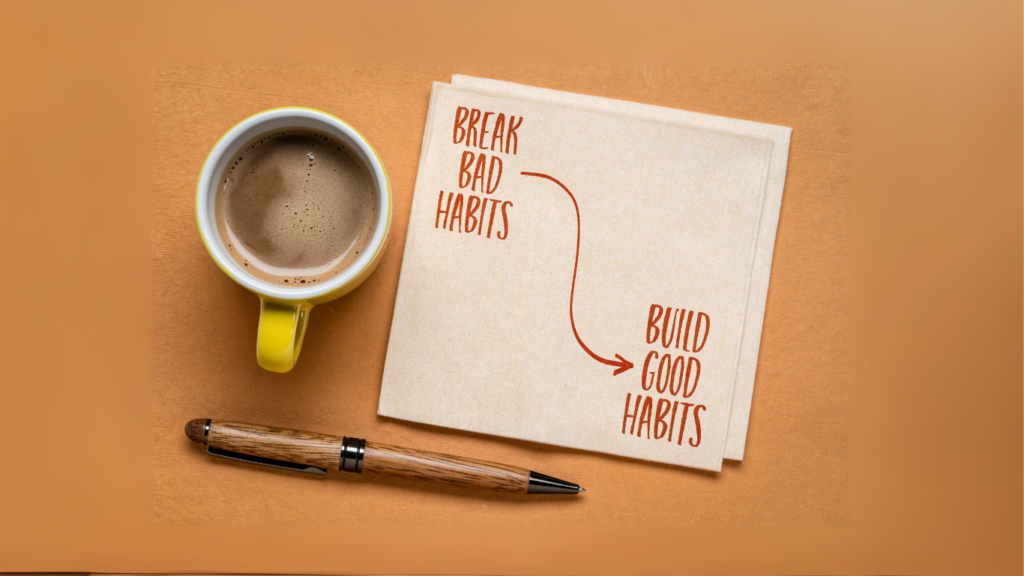A key to development, productivity, and wellness is to build habits that last. Maintaining new habits beyond a few initial weeks often proves tough for many. In the year 2025, due to new advances in behavioral psychology, assisted hopefuls, and possibly through technology-based tools for monitoring habits, making sustainable habits viable is more feasible. Here is a guide based on scientific research for making habits stick.
1. Have an Understanding of the Habit Loop
The habit loop-giving a cue to an impulse, a snacking routine, and taking out a reward-is drilled home by James Clear in “Atomic Habits” and Charles Duhigg in “Power of Habits.” This goes on to suggest that understanding the habit loop is critical to reinforcing the positive aspect of a behavior.
Research shows that MIT and Stanford University confirm that habits are reinforced very strongly through repeated neural pathways, meaning consistency in doing them is crucial.
Identify the triggers that engage you to commit those acts.
- Trigger a new habit with an existing one; this process is called “habit stacking”.
- The reward must be given immediately and must be meaningful.
2. Start Small and Build Momentum
BJ Fogg’s research in “Tiny Habits” indicates that a high likelihood of establishing a new habit emerges when an individual begins with small, manageable steps.
Research finds that it takes, on average, at least 66 days for a new habit to become self automatic, according to a journal published in the European Journal of Social Psychology.
- Start with the 2-min versions (like one push-up, reading one page).
- Intensify more once the new behavior becomes consistent.
- Celebrate tiny successes to ensure you stay motivated.
3. Put Technology to Work for You
Through AI-driven habit trackers and personalized coaching applications, all tech can work to reinforce habit formation in the year 2025.
Research done in behavioral medicine showed that digital reminders work to boost habit adherence by an evidence-based 40%.
Recommended Apps:
- Habitica –This gamifies habits to keep you motivated.
- Streaks –keep track of completion of daily habits.
- Notion or Evernote – Keep track of progress and reflection.
4. Cultivate Identity-Based Habits
Habits that are aligned with the identity are ever likely to be sustained long term. Rather than saying, “I want to run,” say, “I am a runner.” Such statements augment your own commitment.
Research from the Harvard Business Review states identity habits are 2 times more likely to stick than ones based on outcomes.
Examples:
Instead of, “I want to write more,” say, “I am a writer.”
Instead of: “I want to be healthier,” say, “I am someone who prioritizes well-being.”
5. Set a Stage for Success
Research in behavior says that changing the environment lends to easier maintenance of habits.
Research done by Cornell University states that placing healthy foods in visible areas triples the odds of individuals making healthier food choices.
Strategies:
- Leave healthy snacks out where you can see them if you are trying to build a habit of healthy eating.
- Put exercise clothes out the night before working out.
- Reduce friction by eliminating distractions (like placing your phone in another room to concentrate on work).
6. Focus on Accountability and Social Support
The presence of an accountable partner and a community to share habits with further supports both.
Research by the American Society of Training and Development (ASTD) found that, when partnered with an accountability partner, goals become much more probable to turn into reality.
Ways to Do This Include:
- Join online communities or habit-building groups.
- Use social commitment platforms such as StickK.
- Find a mentor or coach to keep you accountable.
7. Be Flexible and Self-Compassionate
A drive for perfection mostly leaves you burned out and unable to carry on with development. Studies show that self-compassion gives greater chances of carrying out habits over time.
Research states that individuals with self-compassion were 30% more likely to stick to their ambitions following setbacks as established by a University of California.
Takeaways:
Mind the setbacks, and plan for a quick recovery.
Place a focus on never missing a habit two times: If habit maintenance is skipped one day, maintain it the next one.
Focus on progress, not perfection.
In Conclusion
The effective association of behavioral insights, technical support, and identity-based commitment has made it quite feasible to imbue habit formation with the character of dependability. By having a sound basis in the psychology of habits and using the right technology and tools to put yourself in a better place for success, one can make habits stick for a lifetime.
What habit are you working on this year? Share in the comments!



